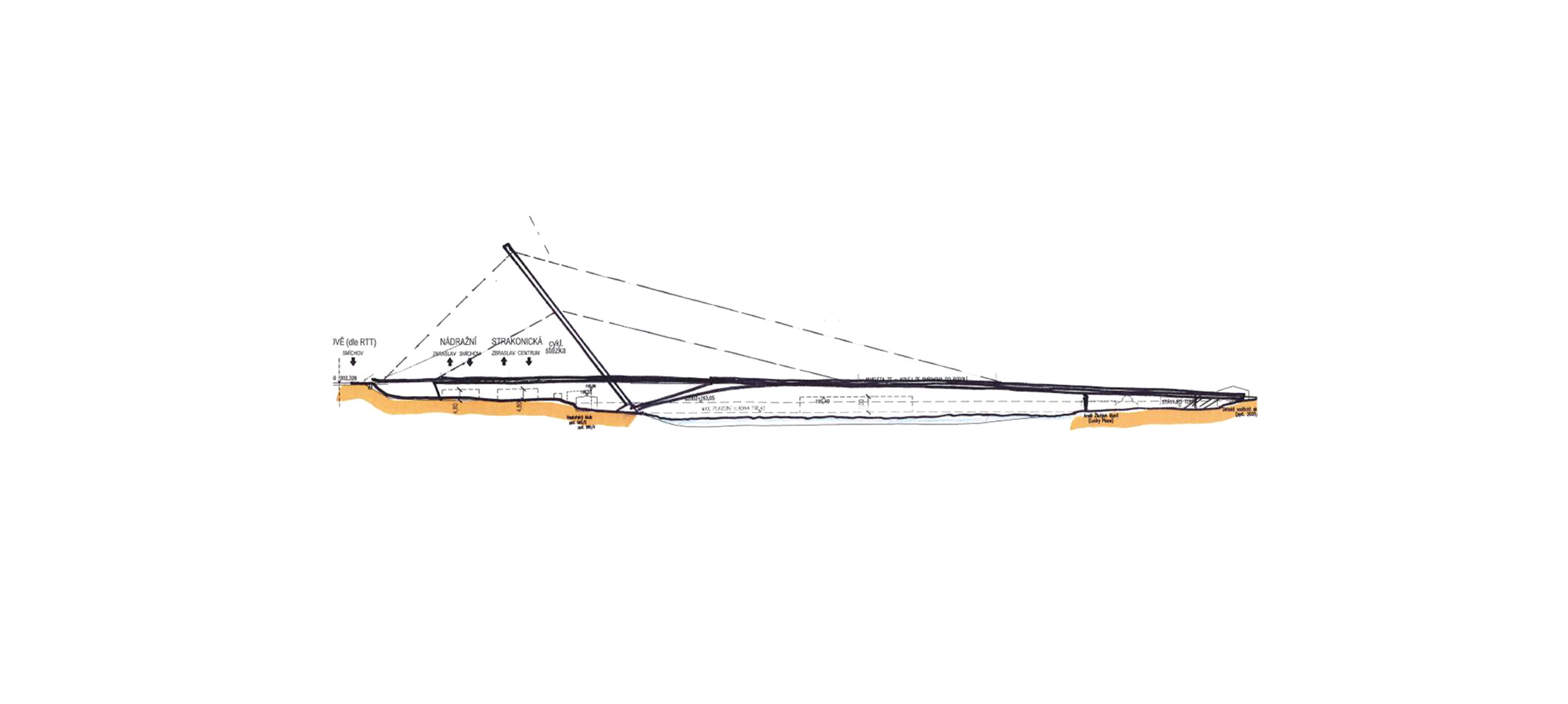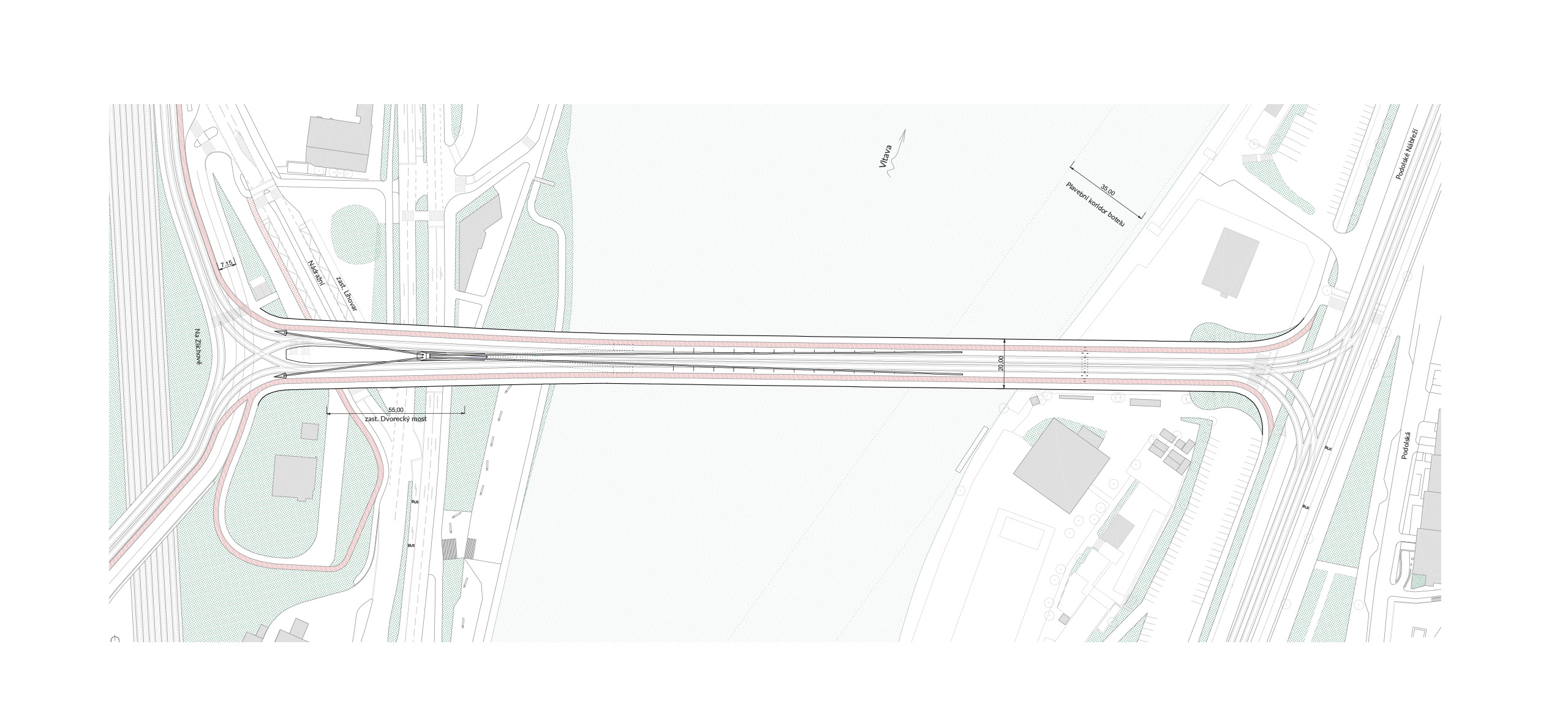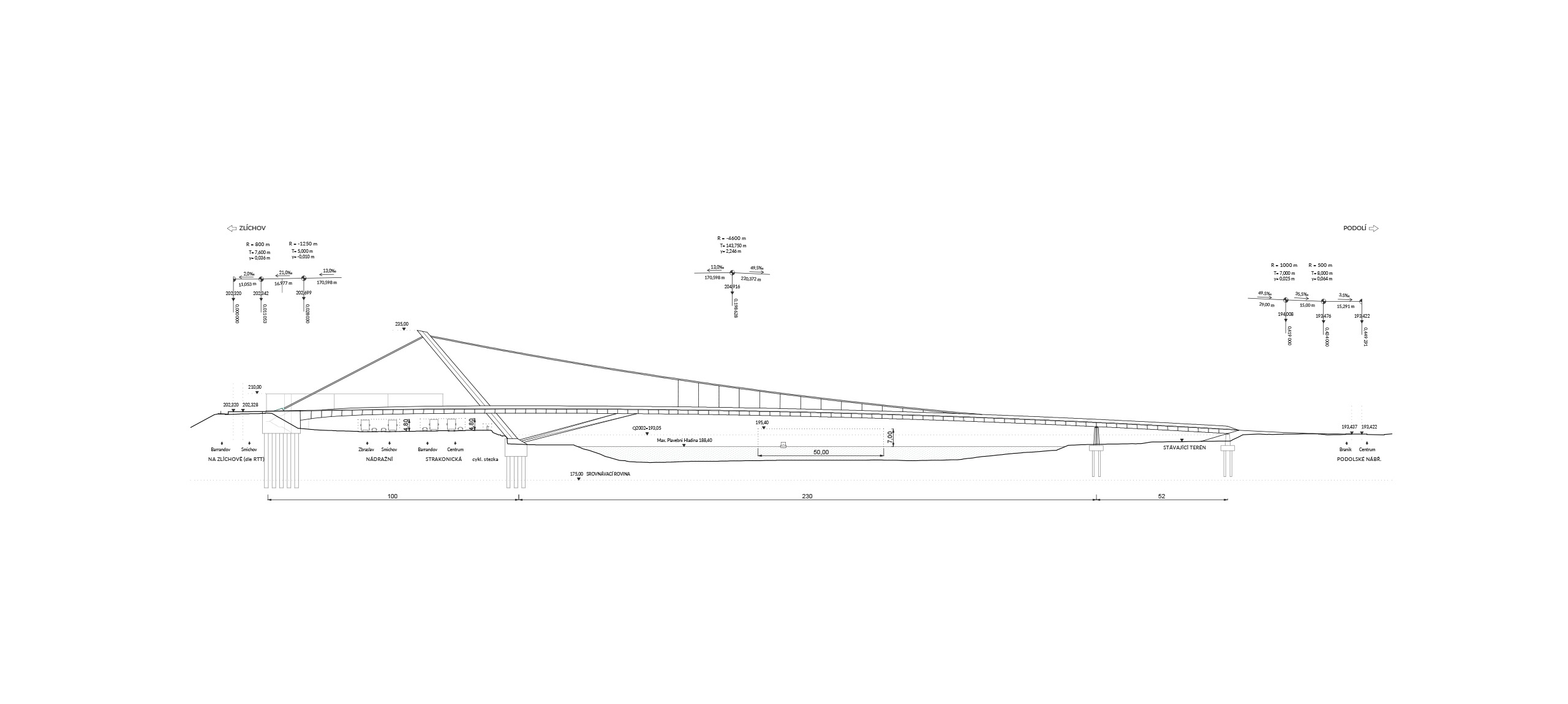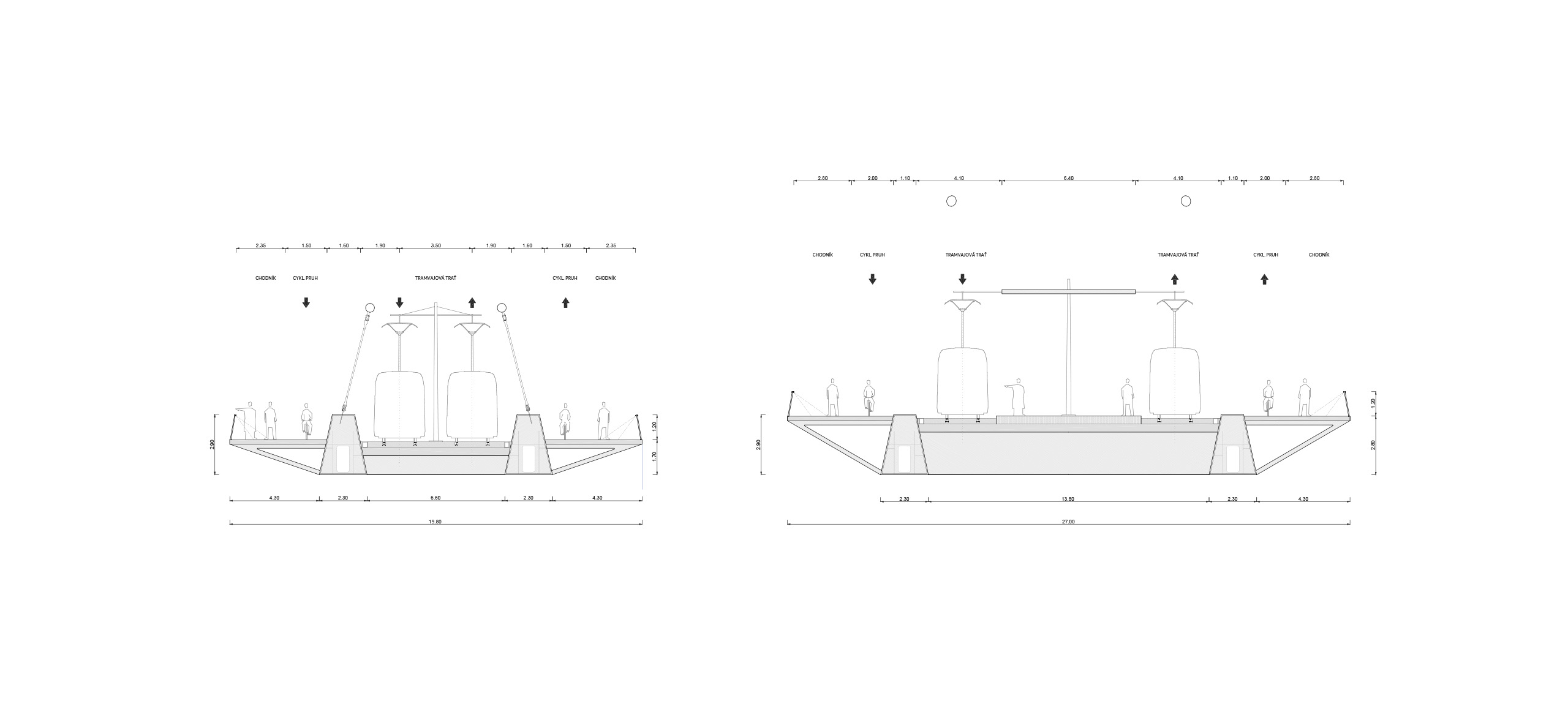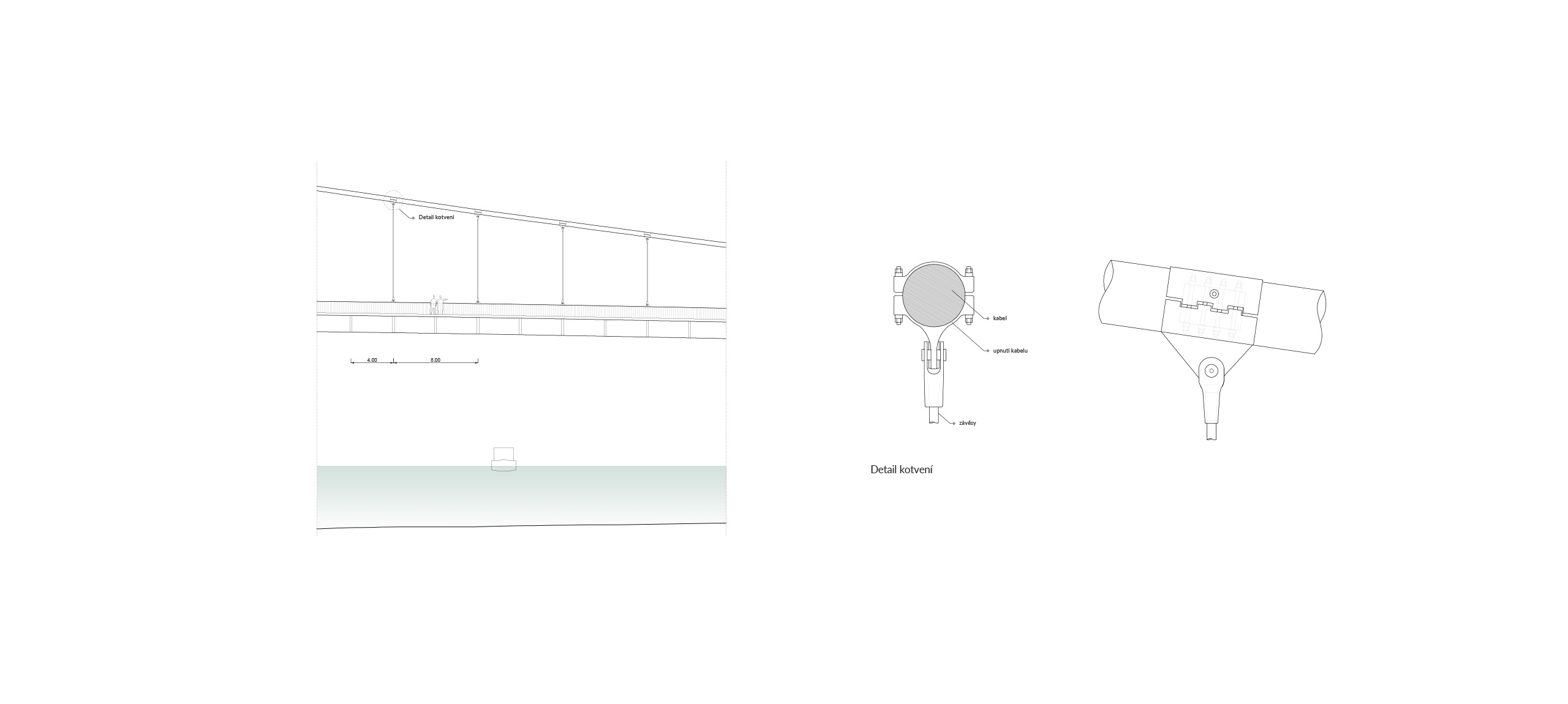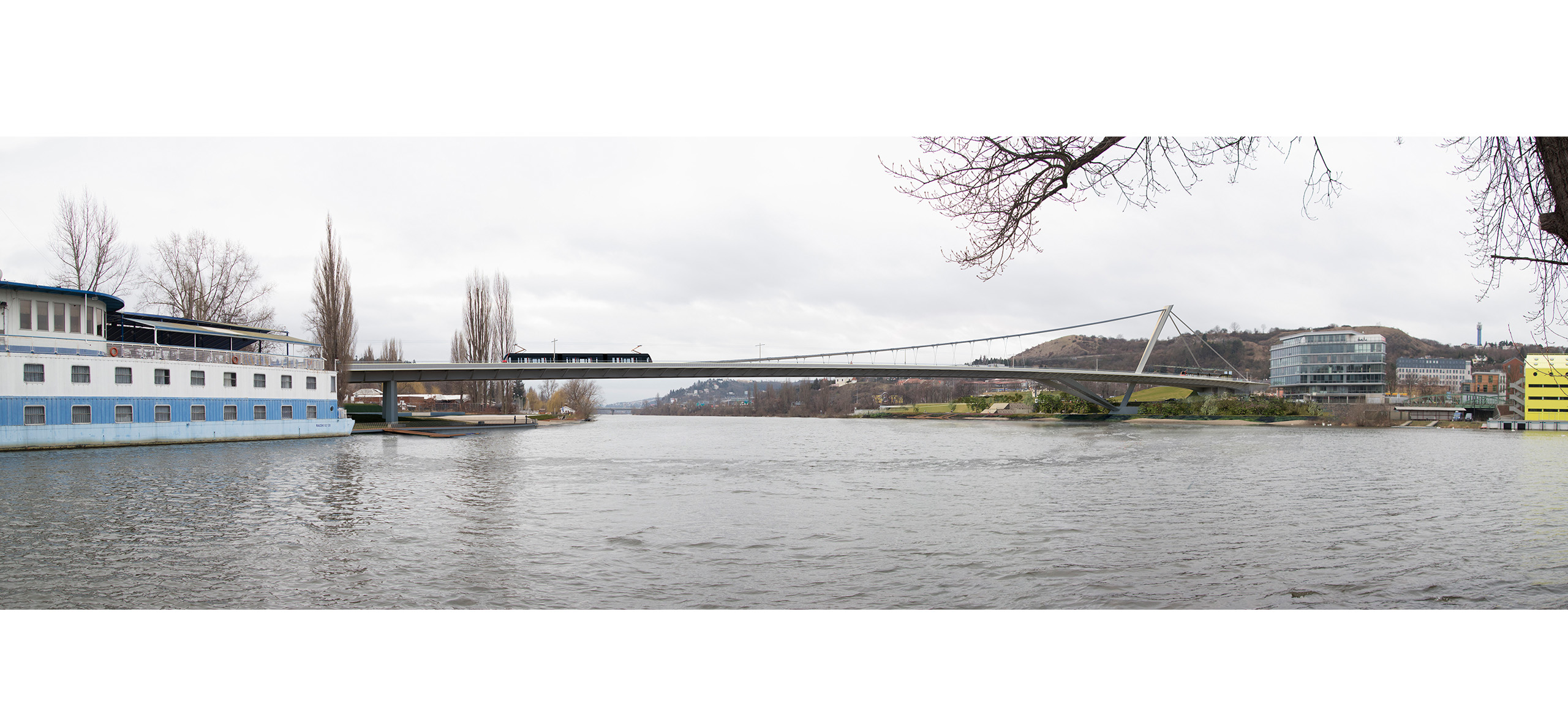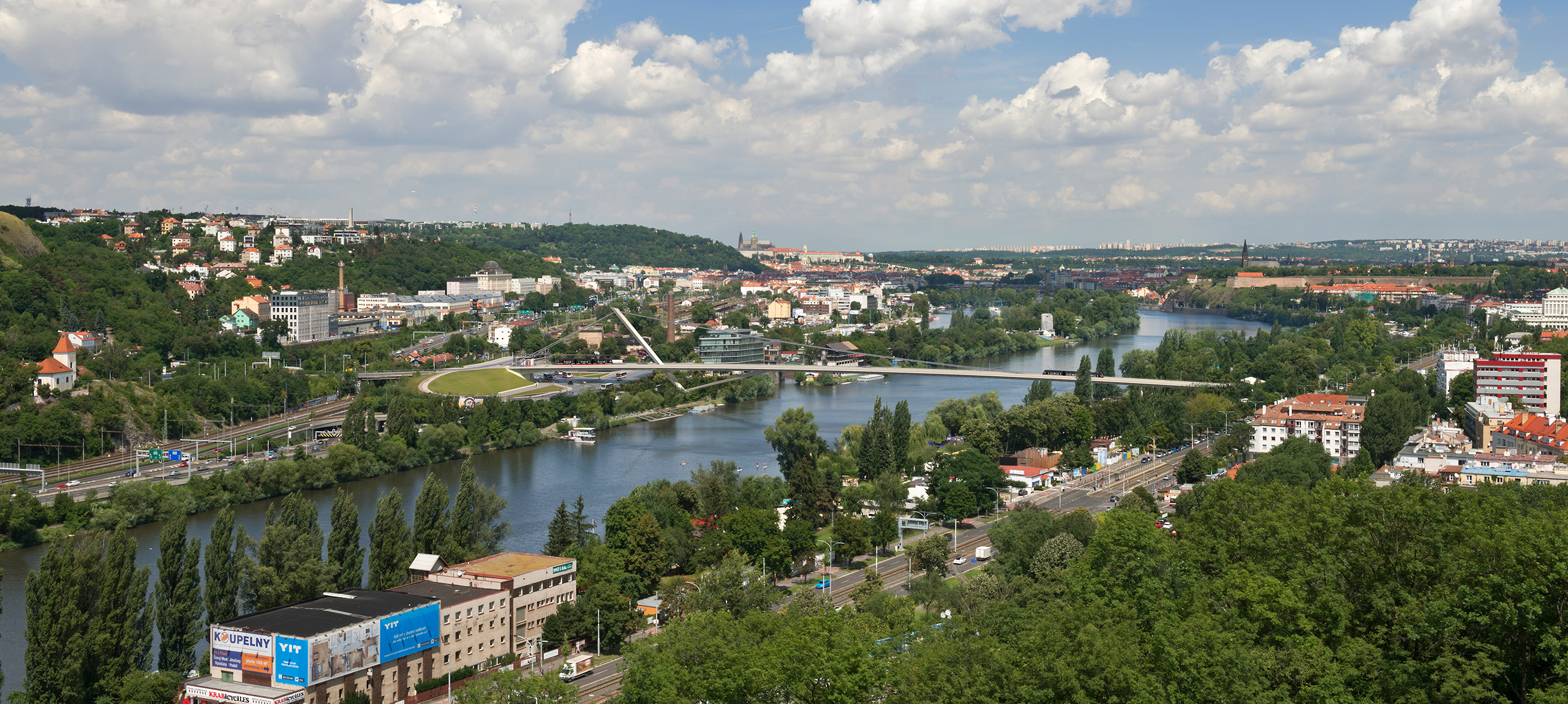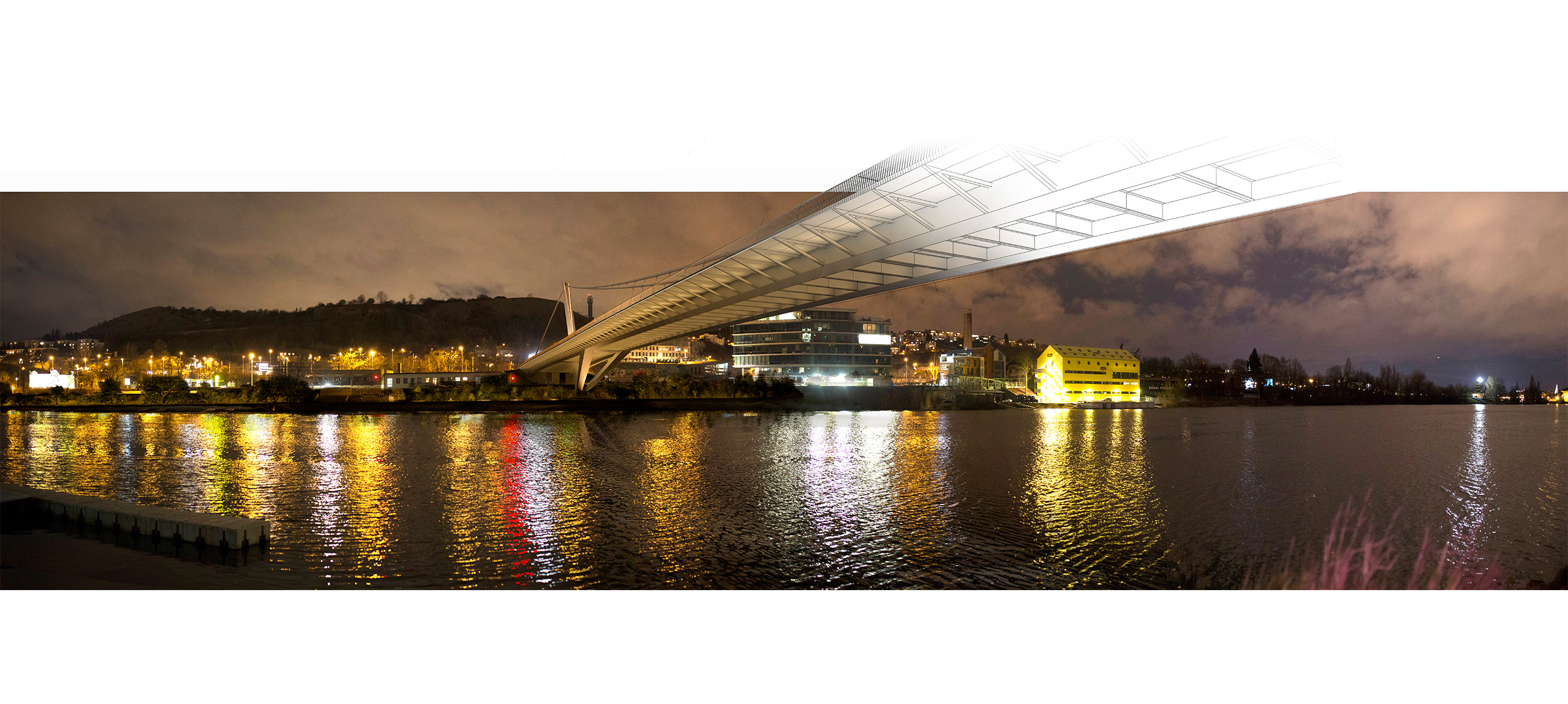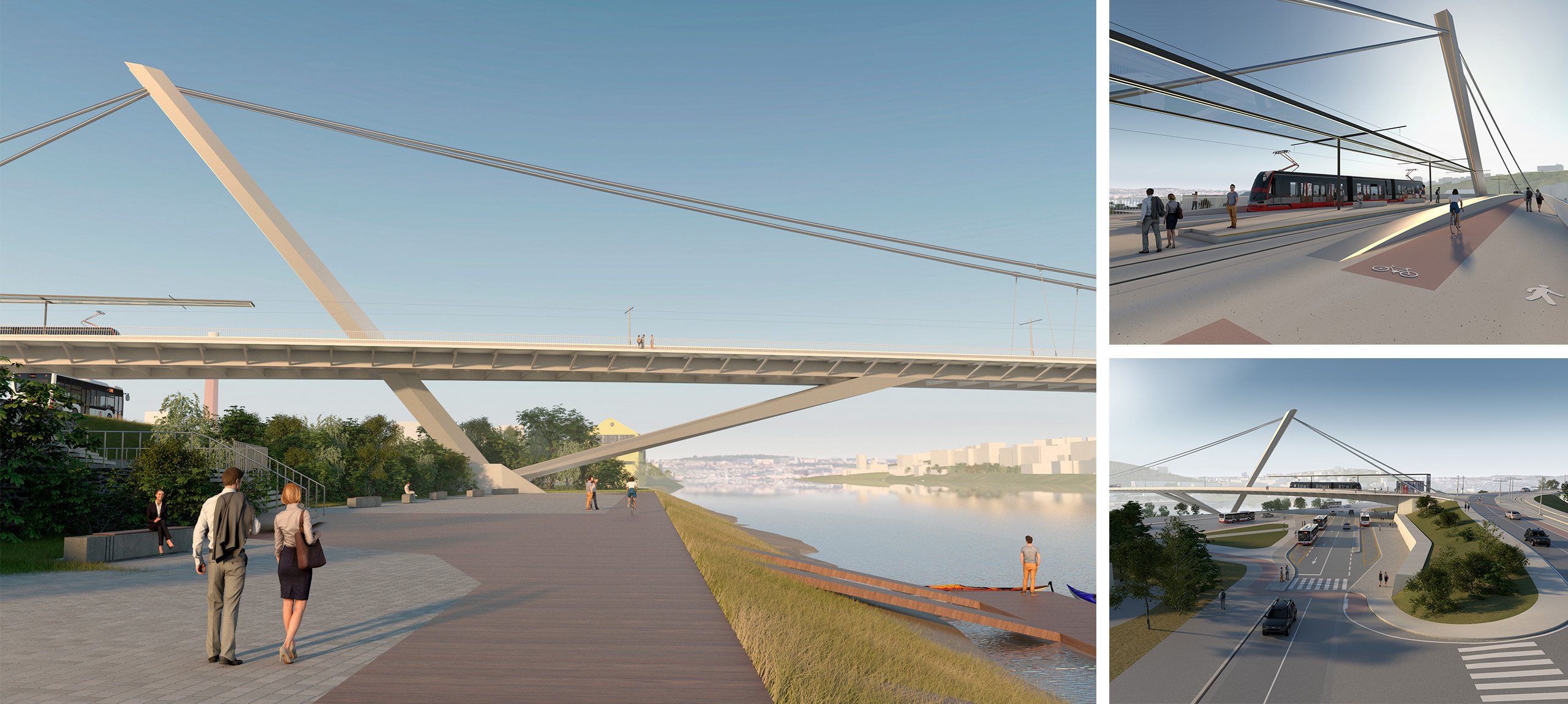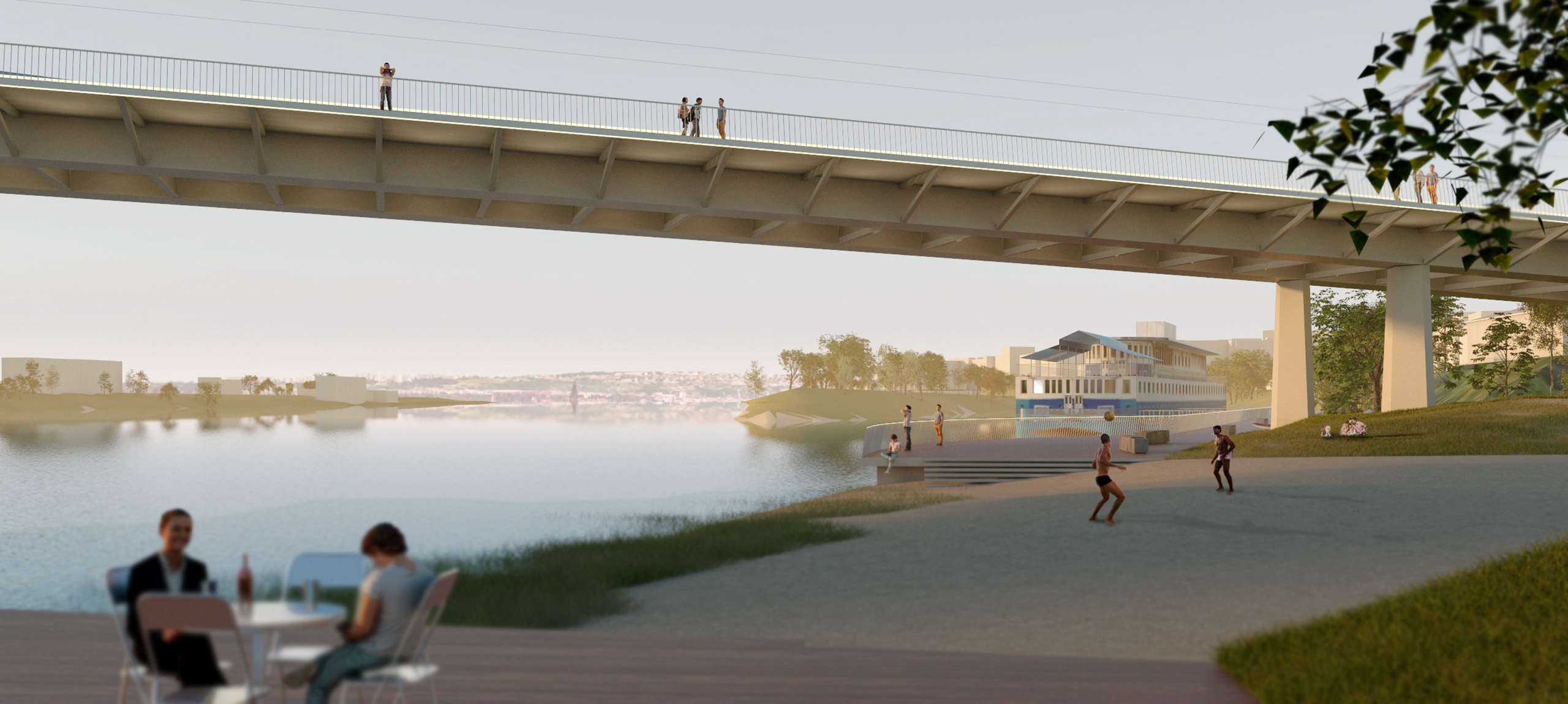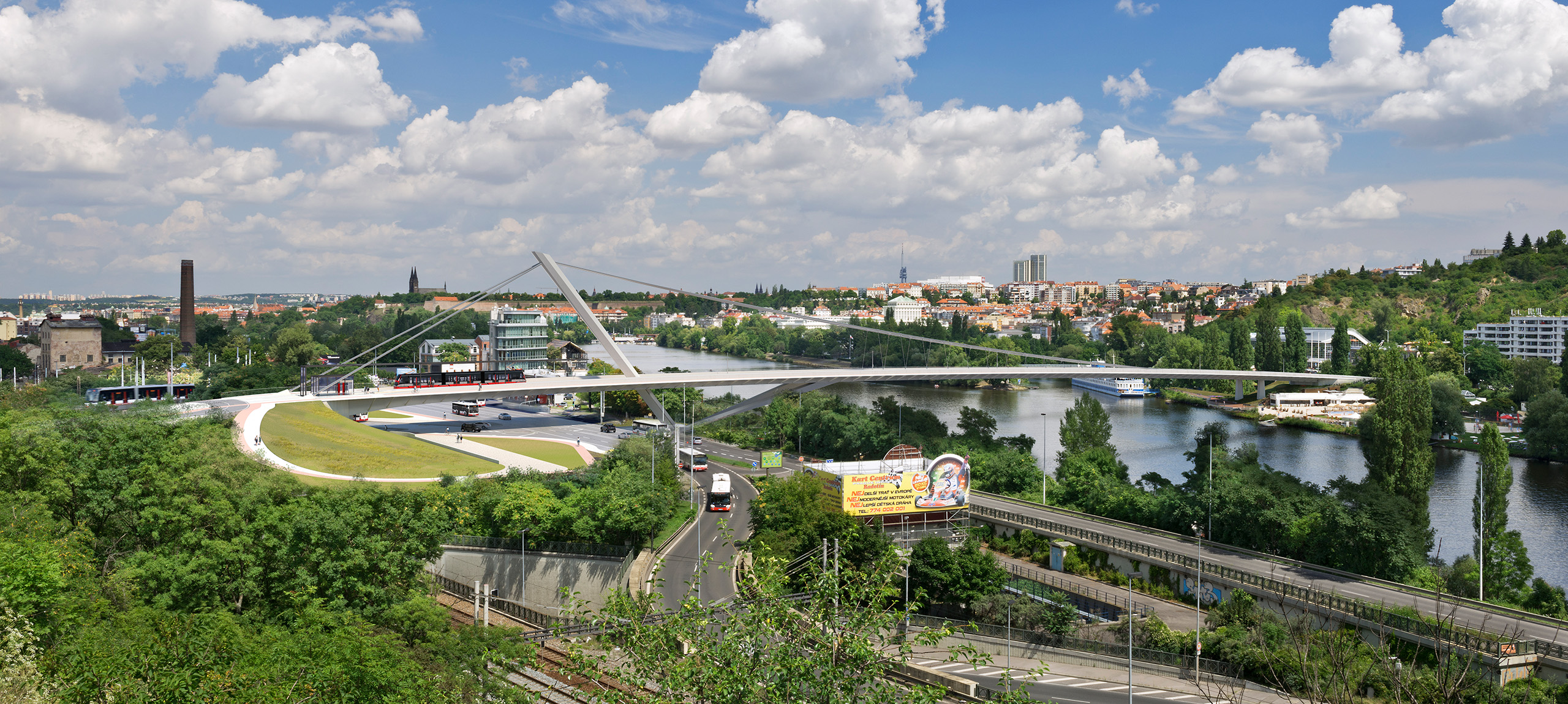
| Dvorecký Bridge | |
| Prague, Czech Republic | |
| Typologie | Hybrid |
| Date | Février, 2018 |
| Mission | Tender design |
| Client | Ayuntamiento de Praga |
| Design | Fhecor |
We are taken in by the site, the Vltava River and Prague. East and West of the city are joined by many bridges. Now a new bridge will stimulate the South part of Prague. The bridge will be a significant architectural landmark in the Valley of Vltava River. The new bridge should be elegant and functional, buildable and affordable.
The bridge spans over the river entirely, without piers. Spanning the whole width of the Vltava is in deference to the river and a way to not limit the use of the waterways in the future.
The site is quite asymmetrical: in the Smichov side the structure has also to span a wide area plenty of infrastructure services; in the Podolí side the bridge has to span a short bank area used as a leisure space.
The new bridge proposed is therefore an asymmetric structure, which combines a self-anchoraged suspension system with a frame structure. The use of an inclined strut under deck reduces significantly the suspended span. The strut also equilibrates the horizontal force transferred by the inclined and short pylon which has been traced leaning back to the West so that it integrates better visually in the landscape but maintaining its character as a landmark.
The bridge spans over the river entirely, without piers. Spanning the whole width of the Vltava is in deference to the river and a way to not limit the use of the waterways in the future.
The site is quite asymmetrical: in the Smichov side the structure has also to span a wide area plenty of infrastructure services; in the Podolí side the bridge has to span a short bank area used as a leisure space.
The new bridge proposed is therefore an asymmetric structure, which combines a self-anchoraged suspension system with a frame structure. The use of an inclined strut under deck reduces significantly the suspended span. The strut also equilibrates the horizontal force transferred by the inclined and short pylon which has been traced leaning back to the West so that it integrates better visually in the landscape but maintaining its character as a landmark.


